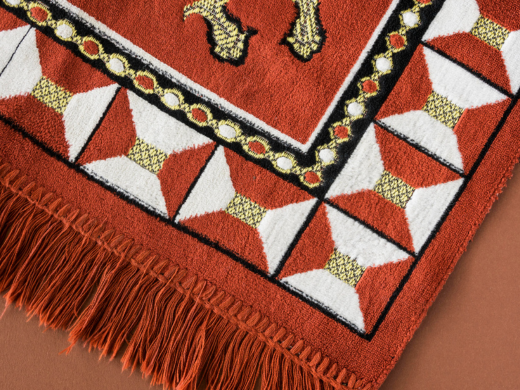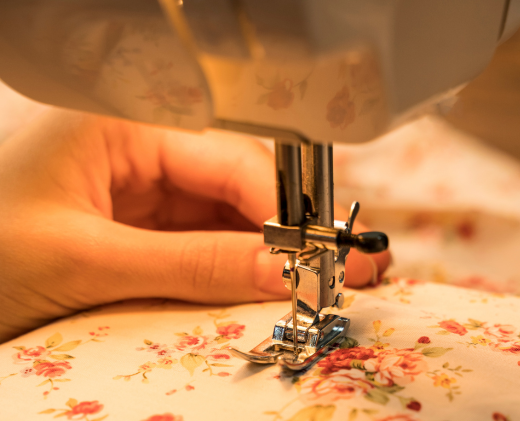Patchwork consists in putting together pieces of cloth of various colors, patterns and weaves to create a new object. Oftentimes, the fabric scraps are cut into geometrical shapes, such as squares, triangles or diamonds, then spread in blocks before being finally sewn together into the final piece. This means patchwork is mainly a matter of sewing different pieces of cloth together.A bottom layer, or backing, used to sew together the quilt top and the batting.Put together, the 3 layers form what is simply called a quilt sandwich. Once they have been sewn together, they create the quilt.Therefore, a quilt must be made of these 3 different layers. Its main purpose is to bring warmth.Although the top layer, the quilt top, may be made of a single piece of fabric, it is generally based on a patchwork. The final result is a thick, warm and decorated piece. While patchwork can be summed up to a technique to put together different pieces of cloth, quilting as a technique consists in fixating three layers together with decorative stitches.
Picking something small and easy will help you succeed on your first try and for more. Try making a first bag, pillow cover.
first project, pick something simple and easy to make. Don’t start all at once with a delicate that and intricate pattern.
There’s a variety of techniques for sewing and stitching. depending on whether a sewing machine stitching by hand.

Cotton is a good choice for any easy-to-sew project in a breathable fabric, such as a blanket.To create light accessories for everyday wear, or decors for your home, you could use linen, hemp or jeans for your patchwork.For more durable and stylish items, canvas or denim are great options. These fabrics add structure and texture, making them perfect for bags, cushions, or upholstery projects.

There are many techniques that not only ensure sturdy joining of these random pieces but also save time sewing and at the same time enhance the overall aesthetic of your patchwork creations can make beautiful patchwork.Methods like chain piecing, foundation paper piecing, and quilting add depth and visual interest. By mastering these techniques, you can create intricate and durable designs with ease and precision.
Plan and sketch quilt layouts, exploring various patchwork patterns to create visually appealing designs that reflect your personal style.
Incorporate light and dark fabrics to add contrast and dimension, enhancing the overall patchwork design with the minute contrast on process.
Focus on sewing fabric pieces into quilt blocks, using precise stitching and consistent seams to ensure uniformity driven across the quilt.
Learn how to layer the quilt top with batting and backing, followed by quilting techniques that add texture and secure all layers together.